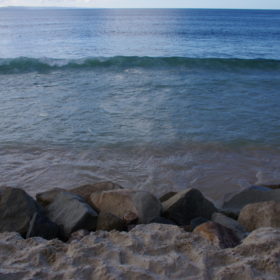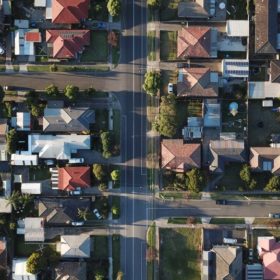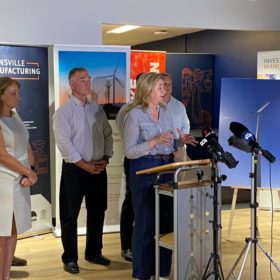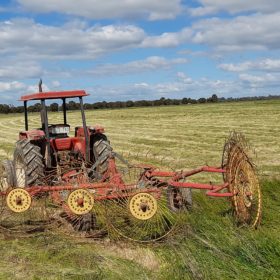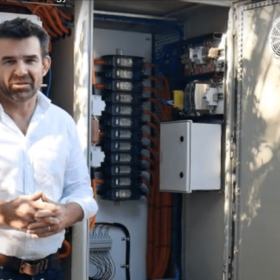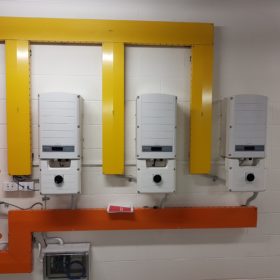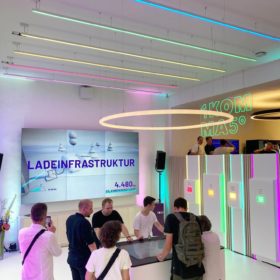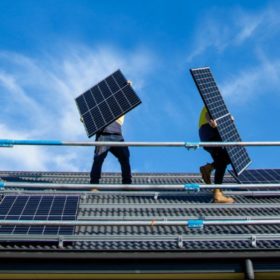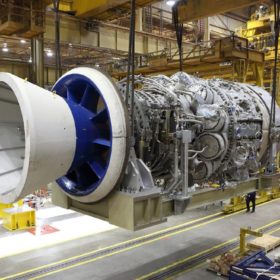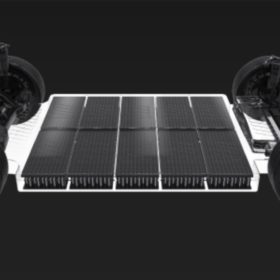Green hydrogen straight from the ocean: Adelaide researchers crack new method
Researchers from the University of Adelaide, along with international partners, have successfully used seawater with no pre-treatment to produce green hydrogen. The team did this by introducing an acid layer over the catalysts in situ. “We have split natural seawater into oxygen and hydrogen with nearly 100% efficiency… using a non-precious and cheap catalyst in a commercial electrolyser,” University of Adelaide’s Professor Shizhang Qiao said.
New digital solar tool launches promising to save customers from aggressive sales tactics
Australian climate tech platform Acacia will launch a new solar feature enabling customers to get a digital solar quote, as well as estimated financial and carbon savings, without speaking to any sales people. The company says the tool is in response to what are often poor buying experiences in the solar sector.
Queensland to build $75m vanadium, rare earth processing facility for burgeoning battery industries
The Queensland government will invest $75 million (USD 53 million) to expand a critical minerals demonstration facility in Townsville – a project it claims will be an Australian first. The facility, slated for operations in 2025, is part of a growing push in Australia to develop battery materials industries beyond simply mining.
Construction begins on 93 MW Victorian solar farm as owner plans first hybrid venture
Construction has now begun on the 93 MW Girgarre Solar Farm in central Victoria, about 70 kilometres west of Shepparton. The project has been in development for at least five years, and was initiated by Leeson Group’s founder and director, Peter Leeson, before being sold to Enel Green Power in 2019.
Queensland flow battery maker integrates products with Chinese inverters
Queensland zinc-bromine flow battery maker, Redflow, has announced its batteries have successfully been integrated with Chinese brand Deye’s hybrid inverters. Redflow says the integration “provides a range of new capabilities previously unavailable to the Australian market.”
SolarEdge inverters first to ‘natively’ comply with SA’s flexible export program
Inverter and battery manufacturer SolarEdge has become the first vendor to meet, via native inbuilt software, the upcoming requirement in South Australia for “flexible exports” from residential solar systems. From July, the South Australian government will require new rooftop systems be fitted with software that allows SA Power Networks to dynamically control solar exports.
Solaray Energy acquired as part of German startup’s $100 million Australian growth strategy
A German startup led by European heavyweights and backed by major institutional capital continues its aggressive acquisitions strategy in Australia, taking a majority stake in Solaray Energy – its second major APAC buy following Natural Solar. Company 1Komma5 is seeking to consolidate Australia’s residential solar sector to become the largest provider of home renewable technologies, devoting $100 million (USD 70m) to “strategically” acquire a number of businesses here within the year.
Solar installers left with ‘hand grenade’ from bloated manufacturer warranties
In the last years, warranties on solar panels have ballooned up to 40 years, but far from inspiring trust, these documents can end up eroding it. Described as a “hand grenade,” some installers claim manufacturers’ unrealistic installation manuals and poor claiming processes leave them in the lurch when equipment breaks. “I think its the biggest threat to the longevity of my business,” Mark Cavanagh, owner of Queensland-based MC Electrical tells pv magazine Australia.
Educational events for engineers upskilling for hydrogen industry begin in Victoria
An educational event series aimed at upskilling engineers to enter the hydrogen industry is launching in February in Melbourne. The Hydrogen Industry Technical Series 2023 is being organised by the Victorian divisions of the Australian Institute of Energy and Engineers Australia.
Brisbane battery casing startup with ‘tremendous potential’ lands support from ReNu
Queensland-based ReNu Energy will acquire up to a 20% stake in fellow Brisbane company, startup Vaulta, which has developed battery casings designed for reuse and recycling. Vaulta will use the eventual $1 million (USD 700,000) investment from ReNu to scale its manufacturing capability and expand domestic and offshore sales.

